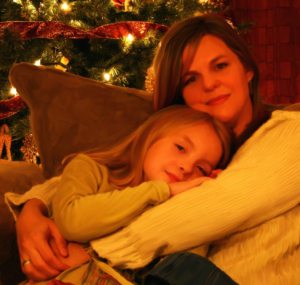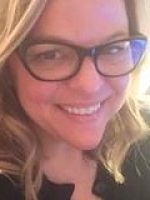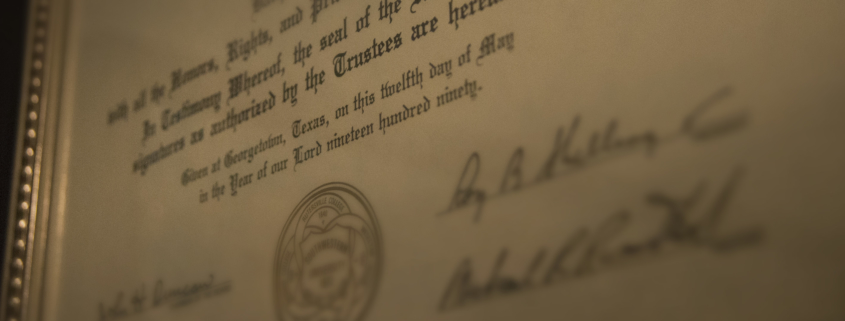Legacy

Last year I attended a party with my mother, in honor of her friend Carolyn’s 75th birthday. The party was filled with people from my mother’s past. Most of them had met at Mesa Community College in the 1970s. They’d been part of a pilot program designed for women returning to school after taking hiatuses to get married or start a family. I ate potluck lasagna and sugary-sweet Costco cake while listening to them try to recall the names of their classmates who had remarried, or retired, or passed away.
The women shared a memory about an assignment their professor had given them to pick out one item at the grocery store, find a spot in the check-out lane behind a person with a full cart, and then assertively ask if they could cut in line to pay. My mother admitted she’d found the task a bit challenging. Self-advocating didn’t come naturally for her. She’d left her family home in Midlothian, Illinois and married my father when she was nineteen.
As the women reminisced, it became clear that MCC’s re-entry program was designed to do more than teach academic cores to female students; it showed them how to re-claim their space in the greater world outside their families and homes.
* * *
My family settled in Tempe, Arizona during the 1970s after my father completed his enlistment with the Army and decided to enroll at ASU on a GI bill. We lived in a small government-subsidized townhome within walking distance of the elementary school my younger brother and I attended. Mom worked as a cocktail waitress at the Jolly Roger, picking up shifts when she wasn’t taking classes at MCC. On laundry day, my mom would hang her wet uniform bloomers from the dining room light fixture to dry. She’d stretch the small waistband of goldenrod polyester around the glass globe attached to the ceiling above our dinner table. They’d hang up there, suspended, demanding to be acknowledged, for a day or two until she had to go back to work. After my father’s graduation, we relocated to Houston where he’d secured an entry-level position at Texas Instruments.
Both my parents were first generation college students. They believed that higher education was the way out of the blue-collar life. My early childhood memories are filled with parental lectures explaining that sacrifice and hard work were the keys to happiness. We all supported my father when he landed his first professional job, because we’d watched him work hard to achieve his goal.
* * *
A late spring dust storm stirred up during Carolyn’s 75th birthday party and Mom asked if I’d mind navigating her Cadillac back to my house. On the drive home, she divulged a detail that’d been lost in the standard telling of our early family history. Days before we packed up our powder blue Rambler and drove across state lines, my mother had received her own acceptance letter to attend Arizona State University.
I realized I’d never given much thought to my mom having her own dreams shoved to the back burner for the greater family good when I was a girl. I was aware that she took college classes, but I didn’t know why. I saw her more as a source of support—providing meals, rides to Judo lessons, bedtime stories, and comforting hugs—than a person with desires outside of our family life.
My eyes welled as I sat behind the leather-wrapped steering wheel. The Cadillac crept through the wall of fine clay-colored earth that obscured the freeway. I understood and recognized the pain of my mother’s sacrifice as she shared her secret, because seventeen years ago, I’d also made the decision to become a mother.
* * *
Motherhood is wrapped in promises of sweetness and nurturing and unconditional love. The concept of complete selflessness isn’t really included in most newborn parenting books. Maybe it isn’t sexy enough to sell. Maybe women wouldn’t sign on to participate if they knew up front about the level of sacrifice required.
My own introduction began with an emergency C-section, because my doctor didn’t notice my daughter was breech until after my water had already broken. I was terrified and angry as they prepped me for surgery. Things were not going as planned. Looking back, it was the perfect primer for learning how to accept my new role. Our beautiful girl arrived and I was immediately downgraded to a background player, aware that her needs would take priority over my own.
When a child enters a family, regardless of their arrival route, priorities shift to ensure their survival, as well as the health of the family unit as a whole. Providing adequate shelter, sustenance, and care for a child—those requirements on the bottom rung of Maslow’s pyramid—oftentimes transcends or replaces existing personal goals for new parents.
The role of primary caregiver has always fallen to women; caregiving is women’s work. As the definition of family has grown to encompass many non-traditional forms, so has the role of motherhood. Within my own social circle of friends who are mothers, some are married and chose to stay home to raise their children, some are married and chose to work, some are divorced or widowed and had to work, and some have partners who’ve chosen to stay home. The ways to provide for a family with children are as varied as the families themselves.
However, forty-six years of parenting data collected from the Pew Research Center’s American Time Use Survey shows that today’s women continue to spend about twice as much time with their children than men do—a fact driven by continued income inequality, increasing childcare costs, and outdated social norms. The distribution of childrearing responsibilities in my own home mirrored the Pew study’s findings. After our daughter arrived, I quit my job as an event planner and took on the role of primary caregiver while my husband focused on his career as an architectural illustrator and provided our family’s income.
* * *
For me, mindful parenting required full attention and copious amounts of time. The rewards of seeing the world through a fresh set of eyes are truly immeasurable, sometimes bordering on magical. At times, I mourn the early years spent taking slow walks around our neighborhood, my curious toddler stopping to examine every bug encountered along our path. No doubt, there is beauty to be found in parenting a child. But dreams of self-actualization don’t necessarily disappear for women once they choose to become mothers, and deferment becomes a viable option for those with ambitions remaining outside the joys of motherhood.
* * *
On a brisk March morning two years ago, I woke early to make breakfast for my mother-in-law, who was visiting to help redecorate my daughter’s room. We’d spent the previous day picking out headboard upholstery fabric and painting the walls. I was tired. As I nursed my second cup of coffee, the conversation turned to the application I’d recently submitted to an MFA program. My mother-in-law, daughter of an Oklahoma dairy farmer and mother of three grown sons, was genuinely perplexed by my decision.
“It will be too hard,” she said. “Why now? You’ll miss out on your daughter’s senior year in high school. Do you want to be like your own mother?”
My mother-in-law’s ambitions had been satiated by raising her children and making a home. Although she felt her questions were sincere, something about their timing struck an exposed nerve and revealed my hidden truth—motherhood had not completed me the same way it had her. I abruptly ended the conversation and got myself ready to go to work at my part-time retail job. I stood in the shower, shaking under the stream of hot water as I asked myself over and over… Was I being too selfish? When was I officially allowed to shift my focus from motherhood and return to my own wants? Did I have to wait until I was in my fifties? Sixties? Seventies?
The universe offered a definite answer later that same morning when the MFA program chair called to congratulate me on my acceptance into Antioch. I cried. My moment of re-entry had arrived.
* * *
 I was raised by a woman who knew her personal potential resided beyond the constraints of motherhood. Her dreams and desires gnawed at her very fiber until she stood up and claimed her moment in our family’s spotlight. Much like her drying bloomers, she refused to be ignored. My mom earned her bachelor’s degree shortly after we moved to Houston, then went on to earn her master’s degree when she later returned to Phoenix. Several years ago she retired from a long, fulfilling career in education.
I was raised by a woman who knew her personal potential resided beyond the constraints of motherhood. Her dreams and desires gnawed at her very fiber until she stood up and claimed her moment in our family’s spotlight. Much like her drying bloomers, she refused to be ignored. My mom earned her bachelor’s degree shortly after we moved to Houston, then went on to earn her master’s degree when she later returned to Phoenix. Several years ago she retired from a long, fulfilling career in education.
* * *
My daughter turned eighteen last month. I’d like to believe I’ve played an important part in raising the kind, thoughtful, loving, creative young woman she’s become. She is a wonder. She is time well-spent, personified.
Exactly one month after she graduates from high school this spring, I will complete my MFA. Having my daughter and husband at commencement, witnessing my attempt to summit Maslow’s pyramid will undoubtedly be one of the most rewarding moments in my life. A moment made possible by their unwavering support. It will also be a moment I’ll wish I could see through my daughter’s eyes, just once more. I hope she sees what I saw in my own mother at her graduations; a woman who willingly deferred her dreams, but never stopped dreaming. And I hope my daughter recognizes her own capacity to simultaneously love big while continuing to grow—forever. It is her legacy.
 Kim Sabin studies Young Adult in the MFA program at Antioch University Los Angeles. When she isn’t driving across the desert to study craft, she lives in Scottsdale, Arizona with her husband and daughter.
Kim Sabin studies Young Adult in the MFA program at Antioch University Los Angeles. When she isn’t driving across the desert to study craft, she lives in Scottsdale, Arizona with her husband and daughter.





